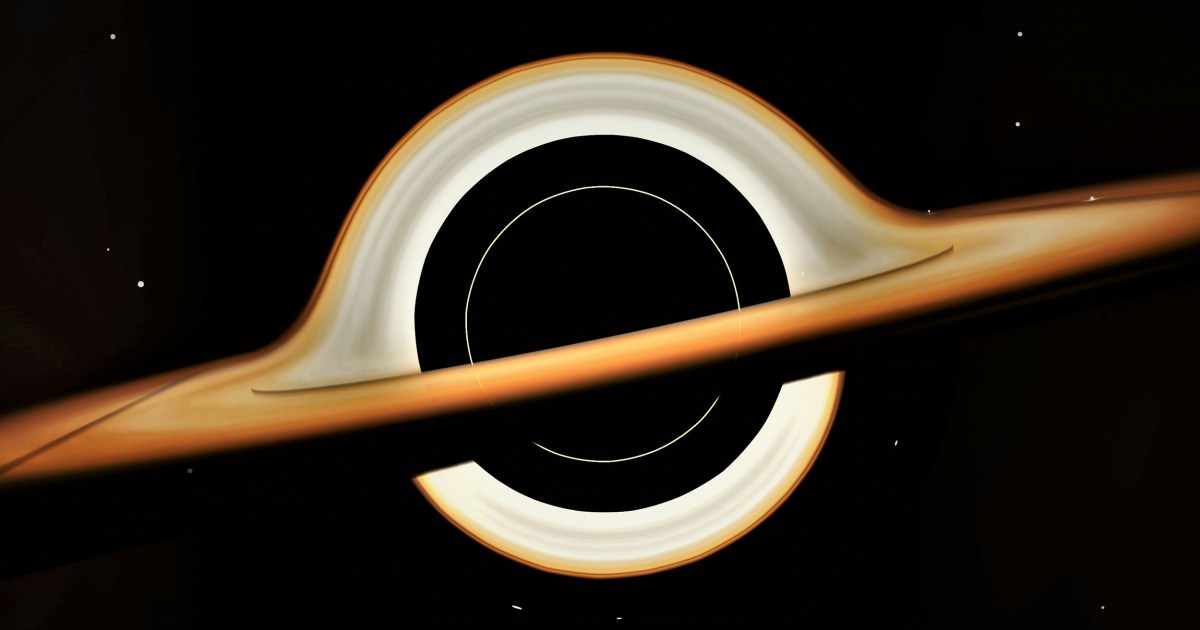Eh thats kinda nitpicky. For non physics people “sucking in with lots of force” is good enough to describe “absurdly strong gravitational pull”. Its not a myth, its an over simplification.
I think the point the article was trying to make is that “sucking in with lots of force” does not really happen any differently outside the event horizon of a black hole than it would in the proximity of any other star (or object) with the same mass.
So it’s addressing the “myth” that being in the proximity of a black hole would inevitably suck you in… however, odds are that if you are not directly aiming for the black hole, even if you did not resist, you would just end up entering an orbit around it, the same way we are currently orbiting the Sun. Or maybe even be catapulted out of it, instead of sucked in.
The difference would be that past the event horizon you would be torn apart by the space distortion (instead of being cooked alive if it were a star). But theoretically if you can avoid crashing into a star, then you can avoid entering a black hole.
does not really happen any differently outside the event horizon of a black hole
I mean, that’s a pretty big caveat, given that strength of the gravitational force in the object was big enough to create the event horizon in the first place
Yes, but that’s very localized and it’s not the same as the image some people have of black holes characterizing themselves for instantly sucking it all in its vecinity.
If the teachings don’t reach outside the classroom, you wouldn’t say that people outside can learn more standing there than they would from any other similarly looking room. For a black hole, the gravitational pull over everything that you can see around it is the exact same as it would for a lower density equivalent mass you might be orbiting.
And we know there are stars heavier than some black holes, which actually would have a stronger pull to things in their proximity than if they were a black hole with smaller mass. Also Stephen Hawkins introduced the concept of micro/mini black holes. He theorized that the minimum mass for a black hole is in the order of 0.00000001 Kg. What makes a black hole have a singularity has more to do with its density than its mass, so if you could smash together a mass with enough strength you could cause it to collapse.
It’s exactly the same gravitational pull as the star that previously collapsed… (And I’ve not read the article (yet), this is just a personal nitpick that I’ve had for a LONG time).
–edit after reading the article–
In terms of inevitably falling into a black hole, it’s only the material that formed interior to three times the event horizon radius — interior to what’s known as the innermost stable circular orbit (ISCO) in general relativity — that would inexorably get sucked into it. Compared to what actually falls into the event horizon in our physical reality, the purported “sucking” effects are nowhere to be found. In the end, we have only the force of gravity, and the curved spacetime that would result from the presence of these masses, affecting the evolution of objects located in space at all. The idea that black holes suck anything in is arguably the biggest myth about black holes of all. They grow due to gravitation, and nothing more. In this Universe, that’s more than enough to account for all the phenomena we observe.
That summary explains it better than I can.
Ok… so…
- Pull you in with the power of gravity
Does not ‘suck’ you in with the power of a vacuum…
About right?
You fall into gravity wells, they don’t suck you.
Best way to understand is to get the mental image of spacetime as a 3d sheet like grid, where each object pushes down on it and creates a pit, or well. The bigger the object the deeper the well, and the more force you will need to stop yourself from sliding towards the object and propelling yourself back up the slope.

Pedantry, thy name is this article.
:nerd:
Removed by mod
Saw a clip of ol Neil coming along and saying that Mount Everest wasn’t the highest point on Earth to a physicist because of the equatorial bulge and “sea level” not mattering to physicists.
Yeah sure just blatantly disregard the entire human perspective of the world and how we as people relate to it to say make up some dumb “gotcha haha” to sound smart.
So many people, him specifically, are incapable of framing things in a non dismissive way. It could have been an interesting point or piece of information about how how large the equatorial bulge is, but he’d rather come off as an insufferable nerd.

Removed by mod
Anyone else get the impression it’s a slow news day?
Well there goes my dream of getting sucked off by a black hole!
and don’t dismiss the bragging rights for being that guy with the longest penis ever
Universe’s longest needle dick.
Removed by mod
Sounds like you can still get pulled by a black hole though!
Pulling, when done well, can be as nice and effective as sucking, and I’m sure black holes have a lot of experience in pulling things.
“This is the only context in which black holes even appear to suck matter in: as they absorb matter that undergoes gravitational infall due to the black hole’s mass”
I may not be the smartest of person but this article seems to contradict itself a little
Pretty sure anyone living in these solar systems. Considers their star to suck.
I imagine all the parties are pretty lame.











